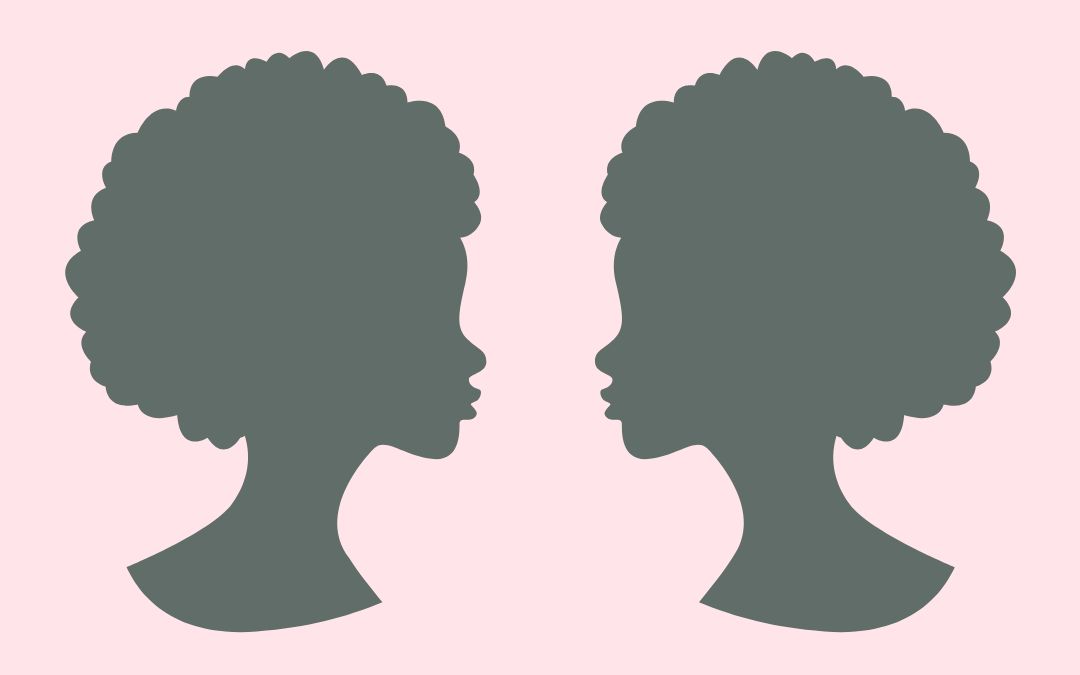Letter From a Professor at Fred’s University
Privileged White Women Calling Themselves “Girls” Has Everything To Do With Race. Stop it.
Dear Students,
This week I received an invitation to speak at a #GirlProfs symposium. My answer is no.
Here is my explanation for why I do not want my students to refer to me as a Girl Prof.
Yes, there will be a test.
Is It Sexist For Men To Call Women Girls?
Yes! It is sexist for men to call women girls. Don’t do it.
Is It Sexist For White Women to Call Themselves Girl?
Yes, it is usually sexist. It’s gross. It reinforces stereotypes and comes from a place of weakness. Worse, when white women call themselves “girls” it is cultural appropriation of a positive use of the term by Black women. Because Black culture and language are central to American life, white privileged women have picked up the term from Black women. They should back off.
It’s important to understand the positive use of the term girl among Black women before looking at the destructive way white women use it.
Is it Sexist for Black Women To Call Themselves Girls?
No. Black women have very good reasons to reclaim the label girl. The term girl is often used as a term of affection between Black women.
Why? American culture has denied Black girls the protected space of childhood. Under slavery, girls were immediately forced into uncompensated work. Following slavery, Black girls were incorporated into the lowest-paid sector of the workforce and routinely denied education.
Black girls were forced to raise themselves as their mothers were recruited to take care of white children at subsistence wages. Restrictive laws made sure there were enough Black women to do the work in white households and prevented Black women from staying home with their own children.
Privileged white women relied on the coerced, unfairly compensated, and devalued labor of Black women to take over their household responsibilities so they could enter the workforce and still have their white children cared for at home. This unfair exchange is one of the reasons white women still out-earn Black women today.
The sentimentalized vision of an All American sugar-coated girlhood is a white middle-class confection from which Black girls were violently excluded.
Some of the most central moments of the Civil Rights Movement are those where young Black girls were in the national eye as they faced lethal cruelty.
Ruby Bridges was one of the Black girls given the dangerous adult task of integrating American education. As she walked to school she was the target of a campaign of terror where she was pilloried by rocks, spat on by white mothers, and threatened with death in front of the whole world.
In 1963 four young Black girls, Denise McNair, Carole Robertson, Addie Mae Collins, and Cynthia Wesley, were murdered by a white Klan member who bombed the Baptist Street Church in an act of racial terrorism that put their corpses in the international spotlight.
The twenty-first century has not been kinder to Black girls who suffer from “adultification,” premature sexualization, and dehumanization.
Please read Girlhood Interrupted: “The Erasure of Black Girls’ Childhood” by Rebecca Epstein, Jamilia J. Blake, and Thalia González.
The authors show how, compared to white girls of the same age, people believe: “Black girls need less nurturing, Black girls need less protection, Black girls need to be supported less, Black girls need to be comforted less, Black girls are more independent, Black girls know more about adult topics, Black girls know more about sex.”
In the United States, Black girls are not allowed to be girls. When Black women call each other “girls” they reclaim a denied space of care, love, and kindness.
While Black Girls Were Not Allowed to be Girls, Black Men Were Not Allowed to Be Men
The logic of white male supremacy dehumanizes people in different ways so as to exclude them from privileges.
Until recently, Black men were routinely referred to as “boys” by whites as a way of denying them the privileges of manhood that they would otherwise enjoy under patriarchy. The racist narrative that slaves were childlike beings who were not capable of full humanity, let alone citizenship and voting rights, continued to play a crucial part in the suppression of Black men after emancipation.
Where manhood conveys power, Black men are excluded from it. Where girlhood conveys protection, Black girls are excluded from it.
What About The White Underclass of Exploited Girls?
Some of the immigrants who arrived in the US voluntarily in the nineteenth and early twentieth centuries share a history of adultification or infantilization with enslaved peoples.
Immigrant children had their childhoods stolen from them and worked in factories from as young as four years old well into the twentieth century. But ethnic minorities were offered the opportunity to assimilate into the majority category of whiteness that was open to them.
Black girls and women were not accepted into the realms of womanhood by white women in the same way Italian and Irish men were accepted into white manhood. Instead, white women systematically excluded Black girls and women from suffrage, labor protections, and from white society.
When some white feminists began objecting to men calling women girls in the 1970s, they failed to make the idea of womanhood inclusive.
Black women started their own party with their own vocabulary. It is too late for white women to join.
What About People Who Did Not Grow Up As Girls Calling Themselves Girls?
For GBTQ kids who were verbally abused by people calling them “girls” as an insult, the word has a special power. When people who did not experience the privileges of girlhood call themselves girls, it is an example of taking back a sexist homophobic slur and owning it. You go, girl.
Why Do White Women Still Want to Be Known As Girls?
Privileged white women are not turning an insult into a term of reverse validation as people sometimes do when they use racial slurs on themselves. Privileged white women are not reclaiming their lost childhoods when they call themselves girls.
Black women made it cool to use the word girl, but white women have picked it up for another sad reason.
White women call themselves girls because girls have more status in our culture than full-grown women.
The older women get, the less power, influence, and authority they have.
Young white women are valued for their sexual attractiveness, their reproductive work, and the inexperience and naivete that make them best serve men.
Women’s value under white male supremacy is in their youth and that is a declining asset.
The reason white women call themselves girls is that girls have more cultural capital than grown women.
To be an adult woman is to be expired, used up, past prime, “unfuckable” as Amy Schumer puts it. In the workplace, men are viewed as more valuable, virile, and competent as they age, while women are seen as less valuable and competent as they age.
If you are a white woman who is old enough to understand the history of the word girl, you are old enough to start changing that history.
Women’s self-objectification has been found to be associated with decreased political activism for gender equality. All too often white women have grouped themselves with the interest of the white men who support them or the male children they wish to protect.
Let’s change that. Privileged white women have accumulated enough cultural capital to make a different world for the girls they are raising to become women. Instead of promoting the regressive #girlboss, let’s promote uplift for all.
White women have a debt to pay to the Black girls and women who were at the forefront of women’s rights and Civil Rights. Many Black women and girls paid for women’s rights with their lives. Others paid with their childhoods. Do not trivialize that struggle by adopting sexist slang.
I am pleading with my Fred’s University students: White women, we have to stop calling ourselves girls.
Sincerely,
Your Lady Professor (JK)
Also Read: Fat Shamers Called Out At Obesity Conference

